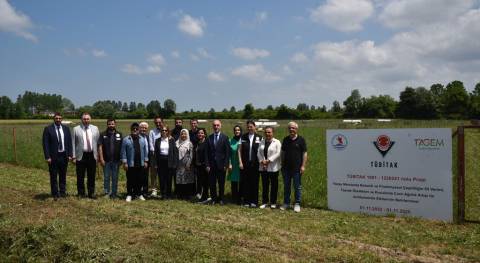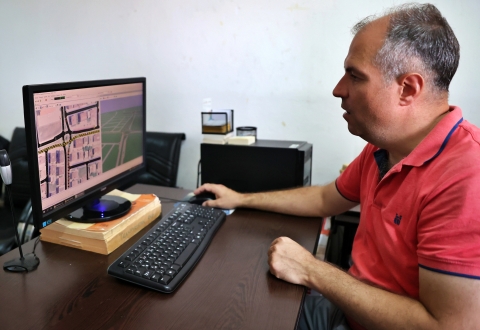Akalan Castle reveals traces of history and biodiversity through OMU-led research
Under the leadership of Ondokuz Mayıs University (OMU), the “Archaeological Surface Survey of Akalan Castle and its Surroundings” project is documenting the cultural heritage of Samsun.
According to a written statement by OMU, the archaeological surface surveys conducted in Samsun’s Atakum and İlkadım districts are carried out under the supervision of Dr. Michael Deniz Yılmaz, a research assistant from the Department of Archaeology, Faculty of Humanities and Social Sciences at OMU.
“According to the 2024 findings, a total of 23 new sites have been identified”
The project includes investigations at 49 different locations, while biodiversity in and around Akalan Castle is also being recorded.
The study, titled the “Archaeological Surface Survey of Akalan Castle and its Surroundings,” has evolved into a comprehensive research initiative with a multidisciplinary approach, bringing together researchers from more than 30 academic disciplines across 4 universities and 1 institution.
As of the 2024 research findings, 23 new archaeological sites were identified. In total, 30 locations were examined in the Atakum district and 19 in the İlkadım district, bringing the number of study areas to 49. The cultural remains observed at these sites reveal historical continuity from the Chalcolithic Period—the earliest traceable human presence in these regions—through to the Ottoman Period and into the modern day.
“Documentation efforts are being carried out in the fields of botany, zoology, entomology, ornithology, and hydrobiology”
Based on the collected data, significant insights were gained into the dietary habits, architecture, cooking vessels, arts, cultures, and belief systems of ancient societies that once inhabited the area. This research contributes valuable information to the archaeology of Samsun and the Black Sea region, and the identification of new sites enhances the documentation of the region’s cultural heritage.
Biodiversity documentation efforts at Akalan Castle are being conducted with permits obtained from the Ministry of Culture and Tourism and the Ministry of Agriculture and Forestry. These efforts are carried out in the fields of botany, zoology, entomology, ornithology, and hydrobiology.
The primary aims of the biological studies are to enhance understanding of the site’s biodiversity, to identify and protect endangered or endemic species where applicable, and to generate comparative data on ancient and modern biodiversity.
The project team includes leading experts from OMU and beyond
The research team includes OMU-based entomologist Prof. Dr. Ünal Zeybekoğlu; zoologist Prof. Dr. Haluk Kefelioğlu; botanists Prof. Dr. Hasan Korkmaz and Assoc. Prof. Dr. Melek Özpiçak; ornithologists Prof. Dr. Kiraz Erciyas Yavuz and Nizamettin Yavuz; Dr. Alper Durmaz from Artvin Çoruh University; and hydrobiologist Prof. Dr. Savaş Yılmaz.














